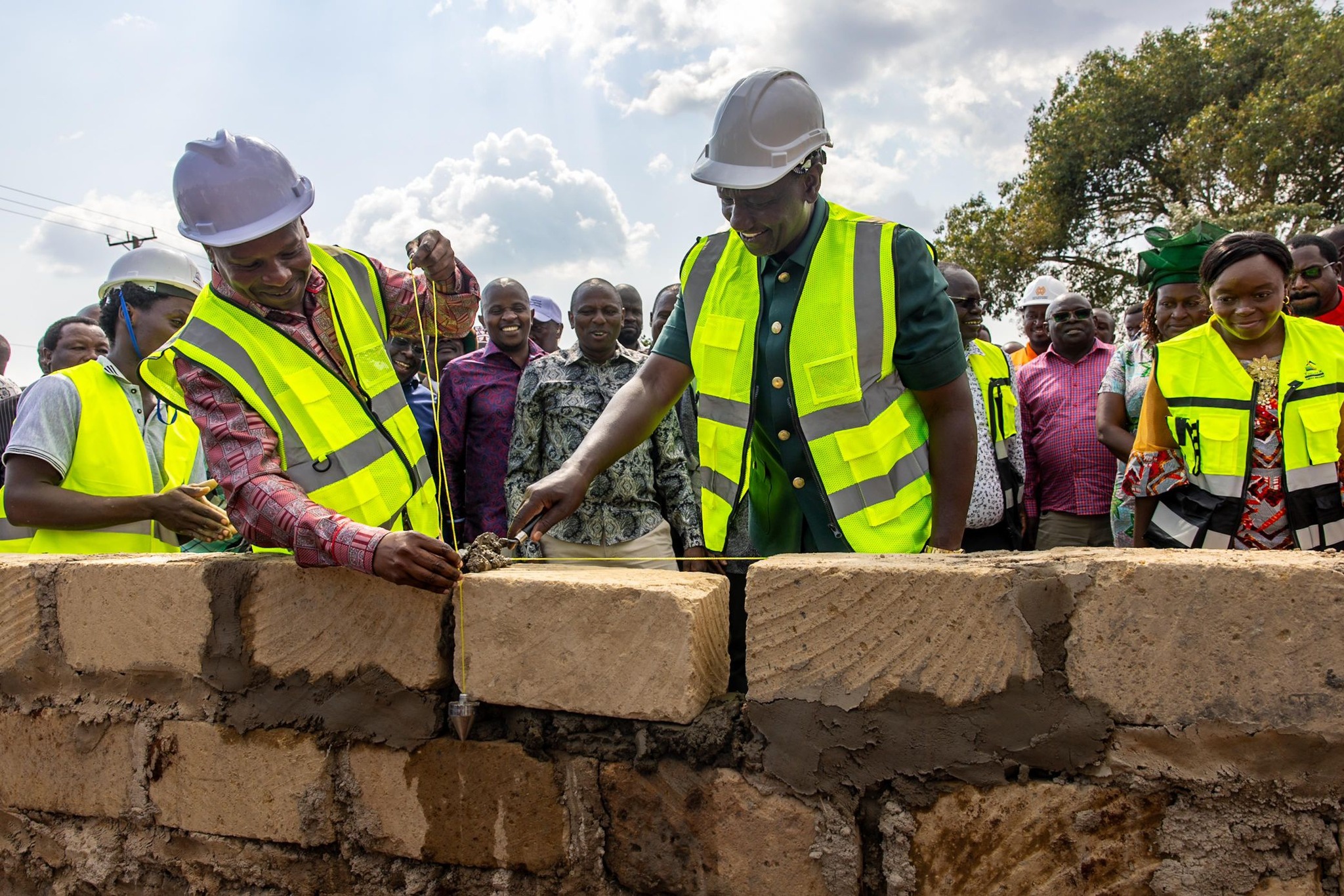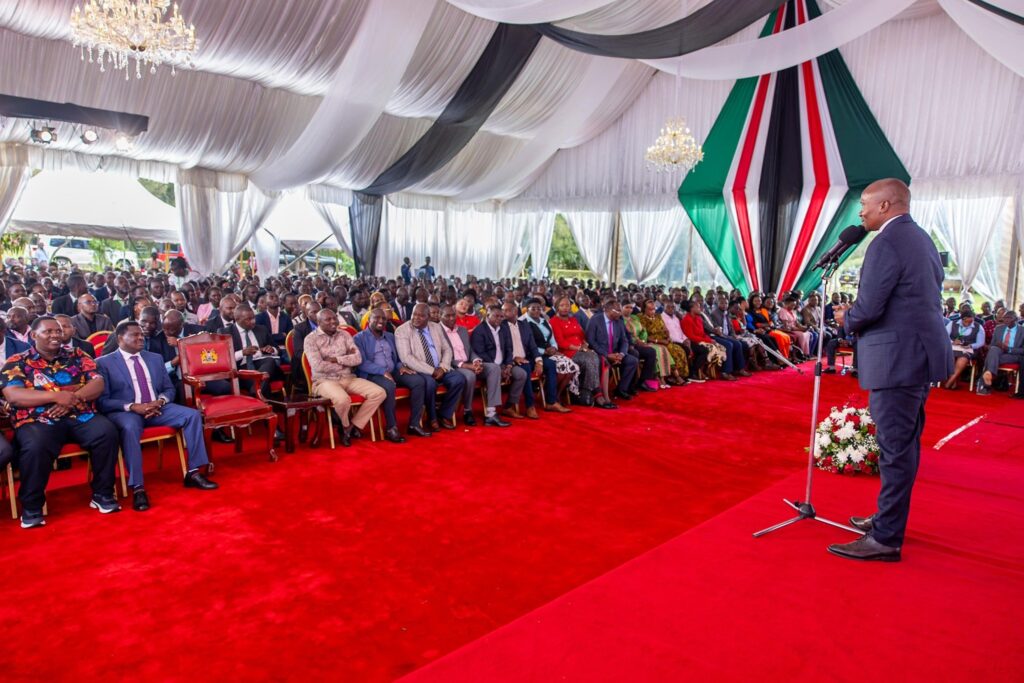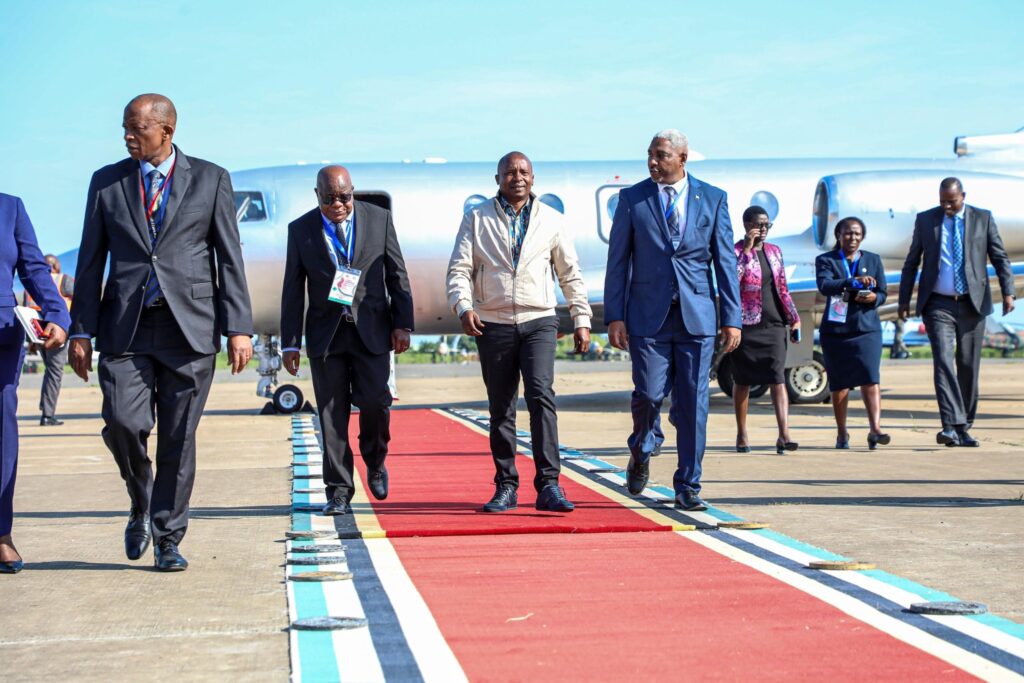
A Quiet Force Driving Ruto’s Re-election Bid? » Capital News
NAIROBI, Kenya, Feb 8 – When Deputy President Kithure Kindiki took the oath of office as Kenya’s third Deputy President, President William Ruto expressed relief, saying his days of governing alone were over. For two years, Ruto had navigated leadership amid tensions with his impeached predecessor, Rigathi Gachagua.
During Kindiki’s swearing-in on November 1, 2024, Ruto emphasized that his new deputy was stepping into a pivotal role—one that had remained largely inactive.
“I need your voice. I am sure you will do that which I have missed for two years. At this critical phase of implementing our Bottom-Up Economic Transformation Agenda, Kenyans require a public servant and a champion of our constitutional dispensation,” Ruto stated.
From his first day in office, Kindiki was tasked with uniting the government, fostering inclusivity, and advancing Kenya Kwanza’s economic blueprint.
Reshaping Government Strategy
In his first 100 days, Kindiki has spearheaded efforts to streamline government operations and track campaign promises. He has led economic forums in six counties—Taita Taveta, Embu, Isiolo, Kajiado, Tharaka Nithi, and Samburu—to evaluate Kenya Kwanza’s commitments. The manifesto mandates the Deputy President to review the government’s 168 commitments annually—a process that had stalled for two years.
His county meetings have drawn over 1,000 delegates per region, centering discussions on prioritizing key pledges amid financial constraints.

Rebranding the Deputy President’s Office
Belgut MP Nelson Koech lauded Kindiki’s leadership, saying he has restored the office’s stature as a national institution rather than a political stronghold serving narrow interests.
“Indeed, it is a breath of fresh air to see how DP Kindiki has distanced the office from the sheer toxicity and tribalism it had come to be associated with,” Koech said.
Kimilili MP Didmus Barasa echoed similar sentiments, noting that Kindiki has dismantled factionalism within the ruling coalition, allowing for smoother governance.
“Even the leadership of the country has changed because he has aligned the political class, from governors to MCAs. That is why you are seeing the meetings in Karen. We now have a stabilized political leadership where all Kenya Kwanza leaders are pulling in the same direction,” Barasa stated.
A Trusted Presidential Enforcer
Kindiki has positioned himself as Ruto’s key enforcer, chairing cabinet committee meetings and leading major government decisions. Under his oversight, the government has moved to dissolve 47 parastatals as part of a cost-cutting initiative.
His role also extends to conflict resolution. Unlike his predecessor, Kindiki has been trusted with delicate negotiations, including mediating the recent doctors’ strike, which had dragged on for weeks before his intervention.
Belgut MP Koech emphasized that Kindiki has chosen diplomacy over public confrontations, earning him widespread respect.
“DP Kindiki has, in a very short time, proved that you can assert yourself without pushing or threatening others. He has not only changed the face of the DP’s office but also reshaped expectations, showing that the Deputy President is not just an aide to the President but a leader in waiting,” Koech said.

Breaking New Ground in Foreign Relations
One of the most notable shifts in Kindiki’s tenure has been his increased presence in international diplomacy. Unlike his predecessor, who had little foreign engagement, Kindiki has already represented Kenya abroad. His most recent trip was to Mozambique, where he attended the inauguration of President Daniel Francisco Chapo.
This move marks a shift in Ruto’s approach, as he delegates more diplomatic responsibilities to his deputy.

Revamping Government Operations
Ruto’s leadership has often been labeled a “one-man show,” with critics—including former ally Gachagua—arguing that his approach isolates other leaders. However, recent shifts indicate greater delegation of duties.
The government is moving away from project-launching ceremonies led by the President. Instead, Cabinet Secretaries will take charge of unveiling projects, ensuring proper funding and completion. The Office of the Deputy President has been assigned the task of supervising and inspecting projects in all 47 counties, spanning infrastructure, economic zones, and industrial projects.
A More Unified Government?
According to Barasa, Kindiki has successfully restructured government operations to align with Ruto’s vision, making governance more efficient.
He contrasted this with Kindiki’s predecessor, whom he accused of prioritizing personal business interests over national development.
“He has synchronized state functions and restructured them to align with the government’s broader agenda. Unlike his predecessor, who focused on personal business interests, Kindiki is ensuring government projects are implemented effectively,” Barasa said.
As Kindiki marks 100 days in office, the big question remains: Can he continue to redefine the Deputy President’s role and solidify his influence within Ruto’s administration?
His performance will ultimately determine whether he remains a central pillar in the 2027 re-election strategy—or whether the Deputy President’s office will once again be sidelined.